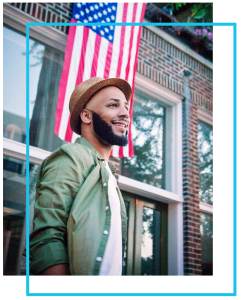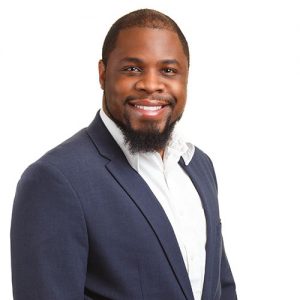Meeting Mentor Magazine
How to Make Events More Diverse, Inclusive, and Equitable
There’s been a lot of talk about making events more diverse, inclusive and equitable, but what exactly do those terms mean?
Greg Morris, CMP, Director of Meetings, Destinations International, and Antwone Stigall, CMP, DES, CED, Chief Events Officer, Antwone Stigall & Co., provided these definitions at the start of a session they did during Meeting Professionals International’s April 8 Global Meetings Industry Day (GMID) virtual program.

Antwone Stigall, CMP, DES, CED, Chief Events Officer, Antwone Stigall & Co.
Defining Terms
Diversity just means that everyone — from all religions, ages, gender identification, race, socio-economic status, etc. — is being represented.
Inclusive: Even if you have the most diverse possible group in the room, it still may not be welcoming to all. Inclusive means that everyone feels welcome, appreciated, and accommodated, and their perspective is valued.
Equity is ensuring that everyone has equal access to all aspects of the program, said Stigall.
Where to Start
“This is about more than just having a seat at the table. It’s also about being invited to the table,” said Morris. When he visits destination management organizations (DMOs) and convention and visitors bureaus (CVBs) — his organization’s members — he first looks at the diversity of the staff, because the more diverse the staff, the more likely it is that the organization will value diversity in its practices and the suppliers and vendors it works with. Who is on their vendor and supplier list? It’s also important to see that the board is diverse. As Stigall said, “One of the first things I look at is, is there anyone there who looks like me?”
Related: ConferenceDirect Bolsters Industry-Wide DEI Push
When researching sites, Stigall said he also looks for diversity represented in the convention center, and also in the other businesses attendees likely will frequent, including restaurants in the area. Also, does the destination celebrate and appreciate holidays from non-dominant cultures? Do they have all-gender restrooms available?
“Then I can take that information back to the organization I work with and say, this destination is doing all the things we need to be representative of who we are, because the destination becomes an extension of our organization and our team,” said Stigall. “It’s about more than dates and rates and space.”
Related: Hotel Industry Foundation Pledges $5 Million to Further Diversity, Equity and Inclusion
Every group will have different DEI requirements, so suppliers that will work for one group may not work for another, they said. It’s important for destinations not to solely rely on a few favored suppliers, but to have a wide range available to meet the needs of different groups.

Greg Morris, CMP, Director of Meetings, Destinations International
DMOs and CVBs also should take the opportunity to work with local law enforcement to ensure that the meeting will be held in a “safe garden” where attendees won’t have to worry about being profiled or worse. It may be important to have law enforcement and/or security present, but planners need to be able to balance safety and any potential attendee concerns, they said, both in the meeting venue and when they are out on their own in the destination.
Facing Down the Elephants in the Room
One big elephant in the room is the relative dearth of people of color in positions of power in the industry, whether in DMOs and CVBs, event companies, or industry associations. “We’re doing what we can, but we can do a lot better,” said Stigall. Another elephant is moving beyond have a DEI statement to actually doing the work required to truly become diverse, equitable and inclusive, they said.
Related: ConferenceDirect Associates Back New Code of Conduct
“How are we going to move the needle if we don’t make our own personal investment?” asked Morris, adding that DI offers a DEI masterclass to help members develop awareness of things like microaggressions. “It starts with a personal investment in education,” he said.
The next step, said Stigall, is “to stop walking on eggshells and really look at DEI as something to be celebrated and have fun with.” Just have those conversations. If you don’t understand something, ask. If something bothers you, say so.
And don’t approach DEI work as a one-and-done, said Morris. “This is a long-term commitment. We have a lot of work to do as an industry, and also as individuals. Have those conversations. You have to practice in order to learn.”
“Have fun with it and you’ll see your bias start to shift,” said Stigall.
Design by: Loewy Design